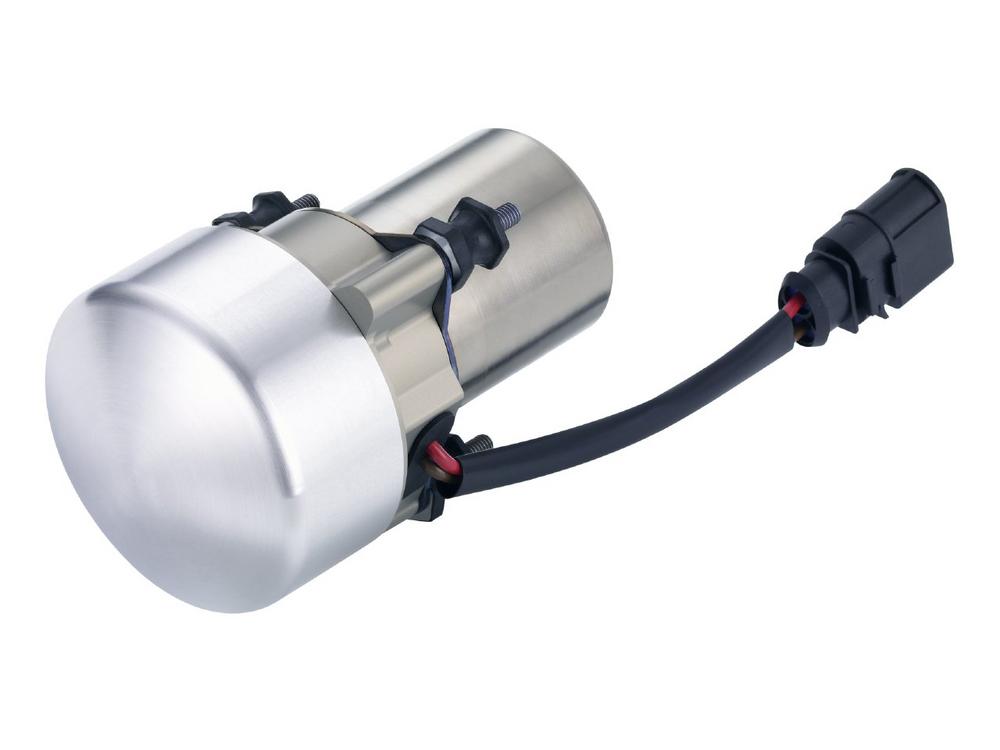For modern gasoline engines, the electric vacuum pump always provides a sufficient vacuum level for safe and easy braking – without the permanent power waste of a mechanical pump. By making the pump independent of the engine, the system allows further increases in efficiency, ranging from an extended start/stop mode (sailing) to an all-electric drive mode (EV mode). It requires little installation space and thus makes a significant contribution to reducing environmentally harmful CO2 emissions.
Also in a compact premium-class electric vehicle (BEV), the pump showed excellent performances during highland testing on the Grossglockner alpine road in Austria.
Mileage, durability and efficiency
In the design of the EVP 40, the manufacturer’s extensive experience in the development of mechanical pumps proved to be of great value. Particular emphasis was placed on reliability and longevity, since vehicle operability must be guaranteed at all times and the braking system in particular has the highest priority. Durability and constancy were also key issues, so the pump had to go through an extensive testing program under all conditions, including temperature tests from -40 °C to +120 °C. For the necessary efficiency, a new, robust brush motor without electronics was specially developed.
Noise, Vibration and Harshness (NVH)
The electric vacuum pump is used in hybrids, electric vehicles and cars with conventional drivelines. The noise generated by the pump system should therefore be so low that it cannot be heard while driving. This is particularly important for electric vehicles and hybrids, which naturally run quietly. Since the pump and the integrated motor were a complete in-house development, straightforward fastening solutions could be found and expensive vibration decoupling elements avoided and hence the entire pump system exhibits excellent structure-borne noise decoupling and low airborne noise emissions. Thus, it can be mounted on body components without causing disturbing vibrations in the structure.
Last but not least, an integrated non-return valve provides added value for the customer, making it easier and cheaper to install the EVP in the vehicle. A simple installation that is independent of other components makes it possible to resolve problems otherwise caused by tight installation space.
Background information: Electric vacuum pumps
Mechanical vacuum pumps which are directly coupled to the combustion engine, are cost-effective, but have the disadvantage that they run continuously during vehicle operation without demand – even at high speeds, depending on the operating mode. The electric vacuum pump, on the other hand, is switched off if the brakes are not applied. This reduces fuel consumption and emissions. In addition, the absence of the mechanical pump relieves the load on the engine oil lubrication system, as no additional oil lubricates the vacuum pump. The oil pump can therefore be made smaller, which in turn increases the efficiency of the driveline. Another advantage: the oil pressure increases at the original installation point of the mechanical vacuum pump – usually at the cylinder head.
With hybrids, electric vacuum pumps enable all-electric driving with the combustion engine switched off, while maintaining full brake boost. These pumps also allow the so-called "sailing" mode of operation in which the driveline is switched off and additional energy is saved due to the reduced resistances in the driveline (extended start/stop operation).
Rheinmetall Automotive AG
Karl-Schmidt-Straße 2-8
74172 Neckarsulm
Telefon: +49 (7132) 33-3140
Telefax: +49 (7132) 33-3150
http://www.rheinmetall-automotive.com
Pressereferentin
Telefon: +49 (7132) 33-3142
Fax: +49 (7132) 3352140
E-Mail: Manuela.Schall@de.rheinmetall.com
![]()
